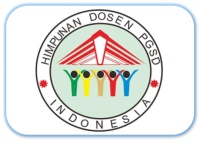PERBEDAAN KEMAMPUAN KOGNITIF SISWA MENGGUNAKAN MODEL KOOPERATIF TIPE JIGSAW DENGAN STAD DI SEKOLAH DASAR
Abstract
Abstract
The purpose of this research was to compare to know the difference of students' cognitive ability using model cooperative Jigsaw type with model cooperative STAD type in the fourth grade of primary school. The design form of this research is quasi experimental. The technique sampling is total sampling and determining to class samplel with random.The study sample used 30 students for the class using the model cooperative Jigsaw type and 28 students for the class using the model cooperative STAD type. The data analysis of both groups uses t test, the result of tct 2,462 and ttable at significant level α = 0,05 2,003, ttest > ttable. This shows significant differences in students' cognitive abilities by using model cooperative Jigsaw type with model cooperative STAD type in Grade IV of primary school.
Keywords: Jigsaw and STAD, cognitive abilities.
References
DAFTAR RUJUKAN
Arikunto, Suharsimi.(2010). Prosedur
Penelitian Suatu Pendekatan
Praktik. Jakarta: Rineka Cipta
Depdiknas.(2006). Kurikulum Tingkat
Satuan Pendidikan. Jakarata:
Depdiknas
Slavin, Robert . (2008). Cooperative
Learning: Teori, dan Praktik.
Bandung: Nusa Media
Sugiyono. (2012). Metode Penelitian
Pendidikan. Bandung: Alfabeta
Trianto. (2014). Mendesain Model
Pembelajaran Inovatif, Progresif
dan kontekstual. Jakarta: Kencana
Wahab, Jufri. (2013). Belajar dan
Pembelajaran SAINS. Bandung:
Pustaka Reka Cipta.
DOI: http://dx.doi.org/10.24036/e-jipsd.v6i1.2901


